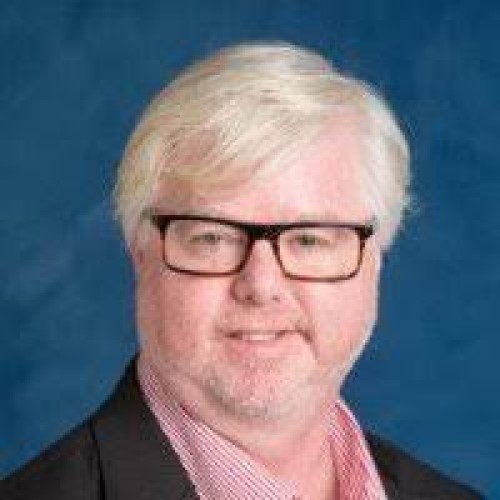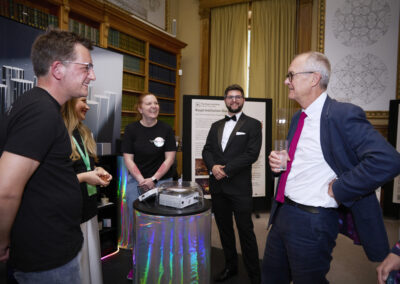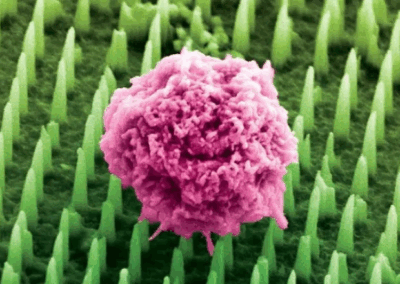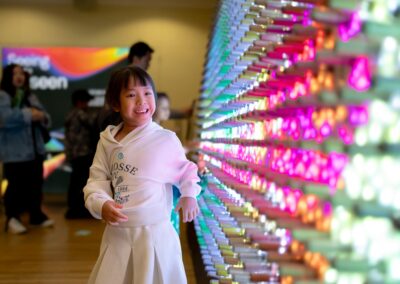Q-NEURO -Diamond Quantum Technology for the Investigation of Neurological disease.
Congratulations to Professor Richard Jackman, LCN academic and Chair in Electronic Devices from UCL EEE, who has just been awarded £225k by the EPSRC (Grant Reference: EP/R026203/1) for an 18-month project to develop a novel imaging method to enable the detection of individual signalling events in neuroscience using a biosensor based on quantum engineered diamond. Professor Jackman’s team who are based at the LCN will aim to follow magnetic / electrical signals through individual neurons and the signal follow through to neighbouring neurons in Alzheimers diseased cells compared to healthy cells. To achieve this, they will use nanodiamonds in arrays acting as magnetometers and a fast camera optical read-out arrangement.
Understanding the function of the brain is one of the most significant challenges of the 21st century. Many people face the prospect of neurodegenerative disease (such as Alzheimer’s); numbers that will only get higher with ever-increasing lifespans, in-part due to success in other branches of medicine and improvements in healthy living conditions. Neurogenerative disease is devastating for both the patient, and his/her family and friends, who progressively ‘lose’ the one they care about. Moreover, societal and economic costs associated with the care regime needed for such patients are significant. The challenge is two-fold by nature of the immense complexity of the brain, contrasted with the minute underlying electromagnetic fields that interconnect individual cells. Unfortunately, there is a lack of methods to detect signalling processes with the desired sensitivity and sufficient spatial resolution, making the challenge of understanding the brain’s complexity near insurmountable. Current state-of-the-art techniques monitor fluorescence changes of voltage dependent indicators or use electrical probes to measure voltages across cell membranes. At large scales, SQUID magnetometers are used for magnetoencephalography (MEG), but are insensitive to single nerve impulses and come at great financial cost. Each method has limitations in one or more of the following categories: signal to noise ratio, temporal resolution and spatial resolution. Hence there is a major need for revolutionary methods to overcome these barriers. Q-NEURO aims to fill a major, outstanding need in neuroscience research in a revolutionary manor.
Fluorescence microscopy will be used to readout an array of spins in diamond, which in turn will detect the magnetic fields produced during neural signalling. The spins are associated with the nitrogen-vacancy defect centre in diamond, a quantum coherent spin system allowing for ultrasensitive magnetic detection under ambient conditions.
The quantum-bio sensor developed by Q-NEURO will enable: (i) imaging of individual action potentials from neurons with high spatial resolution down to the nanoscale, (ii) real-time detection of action potentials with sub-millisecond temporal resolution, (iii) wide field-of-view monitoring of neuronal signalling events in two dimensional networks.



